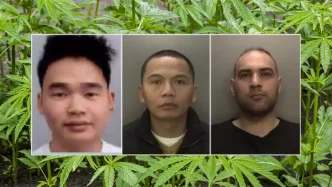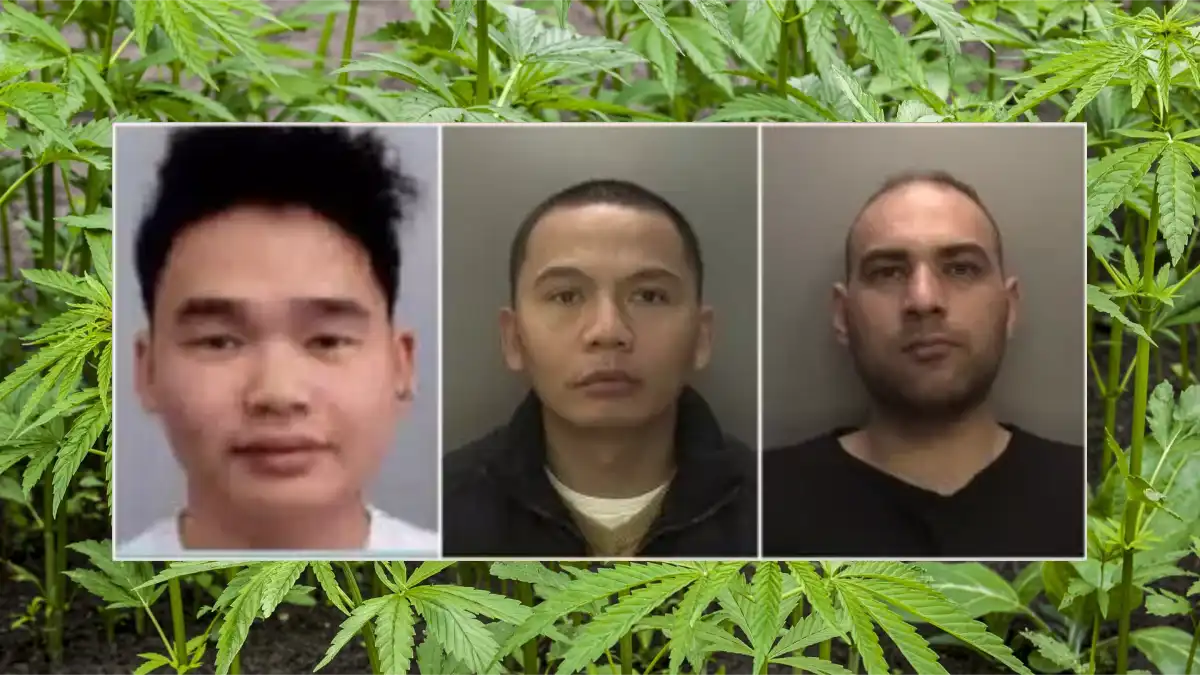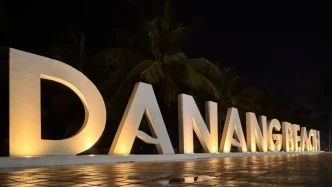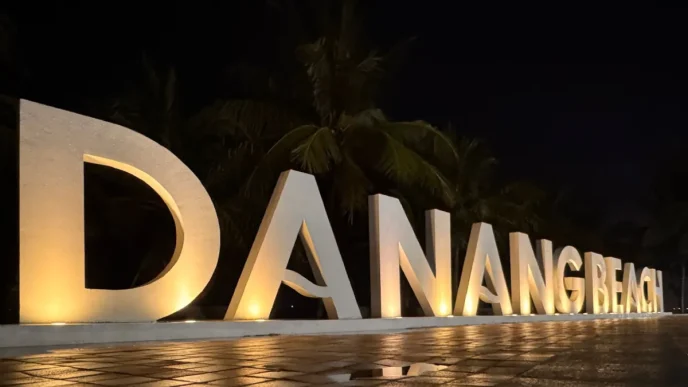In a significant blow to organized crime, Roman Le, a 37-year-old Vietnamese-born naturalized British citizen, has been sentenced to prison by Birmingham Crown Court for running a sprawling network of illegal cannabis farms across the United Kingdom. The conviction, following an extensive investigation by the National Crime Agency (NCA), exposes the deep ties between drug trafficking, human exploitation, and Vietnamese criminal networks operating in the UK, shedding light on a growing transnational issue with roots in South East Asia.
A Sophisticated Criminal Enterprise
Le was found guilty of orchestrating at least eight cannabis farms in residential and commercial properties scattered across the Midlands, North West, and north Lincolnshire. He also operated a storage facility used to house equipment and harvested cannabis. Posing as a legitimate property developer, Le acquired buildings—often disused or derelict—to mask his illicit activities. Among the properties were a former nightclub in Coventry, a pub in Birmingham, and an old hotel in Lancashire. To maintain the façade of legality, he frequently erected scaffolding around these sites, creating the illusion of ongoing construction.
NCA surveillance captured Le visiting these locations, including a notable instance at the former Big Bamboo nightclub in Coventry. Arriving in a luxury Bentley Continental valued at over US$300,000 (approximately VNĐ8 billion), Le’s ostentatious lifestyle stood in stark contrast to the grim reality of his operations. A raid on the nightclub by the NCA and West Midlands Police uncovered more than 1,500 cannabis plants, with an estimated street value exceeding £1 million (VNĐ35 billion), spread across three floors.
The scale of Le’s enterprise was staggering. The NCA estimates that the profits from such farms, often reaching millions of pounds annually, are funneled back into further criminal activities, including drug trafficking and people smuggling. This conviction marks a critical disruption to a network that has exploited systemic vulnerabilities in both the UK and South East Asia.
Human Exploitation at the Core
Beyond the financial gains, Le’s operations relied heavily on the exploitation of vulnerable individuals, primarily Vietnamese and Albanian migrants. Many of these workers were trafficked into the UK illegally and forced to tend to cannabis plants under appalling conditions. Often, they lived among the plants, trapped in a cycle of debt bondage to people smugglers who facilitated their entry into the country.
NCA Senior Investigating Officer Paul Boniface underscored the human toll of Le’s activities. He noted that the cannabis factories produced drugs worth millions while exploiting migrants who were coerced into labor to repay smuggling debts. Boniface described Le as someone who portrayed himself as a legitimate businessman but was, in reality, profiting from the misery of others less fortunate.
This exploitation highlights a broader issue within Vietnamese organized crime networks in the UK. These groups often collaborate with other European criminal entities, using dangerous methods such as small boats or lorries to smuggle people across borders. The cannabis trade, in particular, has become a lucrative focus for such networks, with profits reinvested into expanding their operations and perpetuating cycles of human trafficking.
Arrests and Wider Network
Le’s arrest on November 4, 2020, at his luxury apartment in Birmingham’s Essex Street, where he resided with his girlfriend, was a culmination of meticulous NCA efforts. The operation also ensnared two key associates: Yihao Feng, a 29-year-old from Manchester, and David Qayumi, a 36-year-old from Birmingham. Feng was apprehended in September 2020 after being stopped by police in his Maserati shortly after visiting the old Wellington Hotel in Clayton-le-Moors, which was later found to house over 300 cannabis plants during a raid. On the same day, a raid on the former Queen’s Head pub in Birmingham’s Hockley area led to the arrest of six Albanian nationals and the seizure of another 300 plants.
NCA Branch Commander Kevin Broadhead emphasized the importance of dismantling Le’s network, describing him as the frontman of an organized crime gang capable of generating millions in illegal revenue. Broadhead highlighted the critical role of collaboration with local policing partners in targeting such enterprises, which not only produce illegal drugs but also perpetuate the exploitation of vulnerable individuals.
The arrests and subsequent convictions reveal the interconnected nature of Vietnamese organized crime in the UK. These networks often exploit unsuspecting landlords by renting residential properties for cannabis cultivation, further embedding their operations within local communities. The NCA continues to work with local forces to combat this trend, focusing on disrupting the cycle of illegal immigration, drug production, and human trafficking that sustains such criminal activities.
Transnational Crime and Vietnamese Networks
The case of Roman Le is emblematic of a growing challenge posed by Vietnamese organized crime in the UK, particularly in the cannabis trade. Over the past decade, these networks have increasingly targeted the lucrative market for illegal drugs, capitalizing on the high demand for cannabis. The UK’s relatively high street prices for the drug make it an attractive venture for criminal groups willing to exploit both legal loopholes and vulnerable populations.
Many of the migrants involved in these operations hail from rural areas of Vietnam, where economic hardship and limited opportunities drive individuals to seek better prospects abroad. Smugglers prey on this desperation, promising safe passage and work in exchange for exorbitant fees. Once in the UK, however, these migrants often find themselves trapped in exploitative conditions, unable to escape due to debts or fear of deportation. This cycle of exploitation is a stark reminder of the human cost behind the headlines of drug busts and criminal convictions.
Moreover, the collaboration between Vietnamese gangs and other international crime groups underscores the transnational nature of the issue. These networks operate across borders, leveraging connections in Europe and Asia to facilitate smuggling routes and distribution channels. The profits from cannabis farms are often laundered through various means, further complicating efforts to trace and disrupt their financial operations.
Impact on UK-Vietnam Relations
While Le’s conviction is a victory for law enforcement, it also raises questions about the broader implications for UK-Vietnam relations. The involvement of Vietnamese nationals in organized crime abroad can strain diplomatic ties, particularly as both countries work to address issues of illegal migration and human trafficking. Vietnam has made efforts in recent years to combat people smuggling, with initiatives aimed at raising awareness in vulnerable communities and cracking down on trafficking rings. However, the persistence of such networks suggests that more coordinated international action is needed.
The UK, for its part, has sought to strengthen partnerships with South East Asian nations to tackle transnational crime. Joint operations and intelligence sharing between the NCA and regional authorities have yielded results, but the scale of the challenge remains daunting. Addressing the root causes of migration—such as poverty and lack of opportunity in countries like Vietnam—remains a critical piece of the puzzle, one that requires sustained investment and cooperation.
A Forward-Looking Challenge
The sentencing of Roman Le and his associates is a significant step in curbing the influence of Vietnamese organized crime in the UK. Yet, it is clear that this is but one chapter in a much larger story of transnational crime and human exploitation. As law enforcement agencies continue to target these networks, the focus must also shift to prevention—both in terms of disrupting criminal operations and addressing the systemic issues that drive vulnerable individuals into the hands of smugglers and crime bosses.
For now, the conviction serves as a stark reminder of the hidden costs behind the cannabis trade, a business that thrives on the suffering of the marginalized. As efforts to combat these networks intensify, the question remains: can international cooperation truly break the cycle of exploitation and crime that spans continents?
















